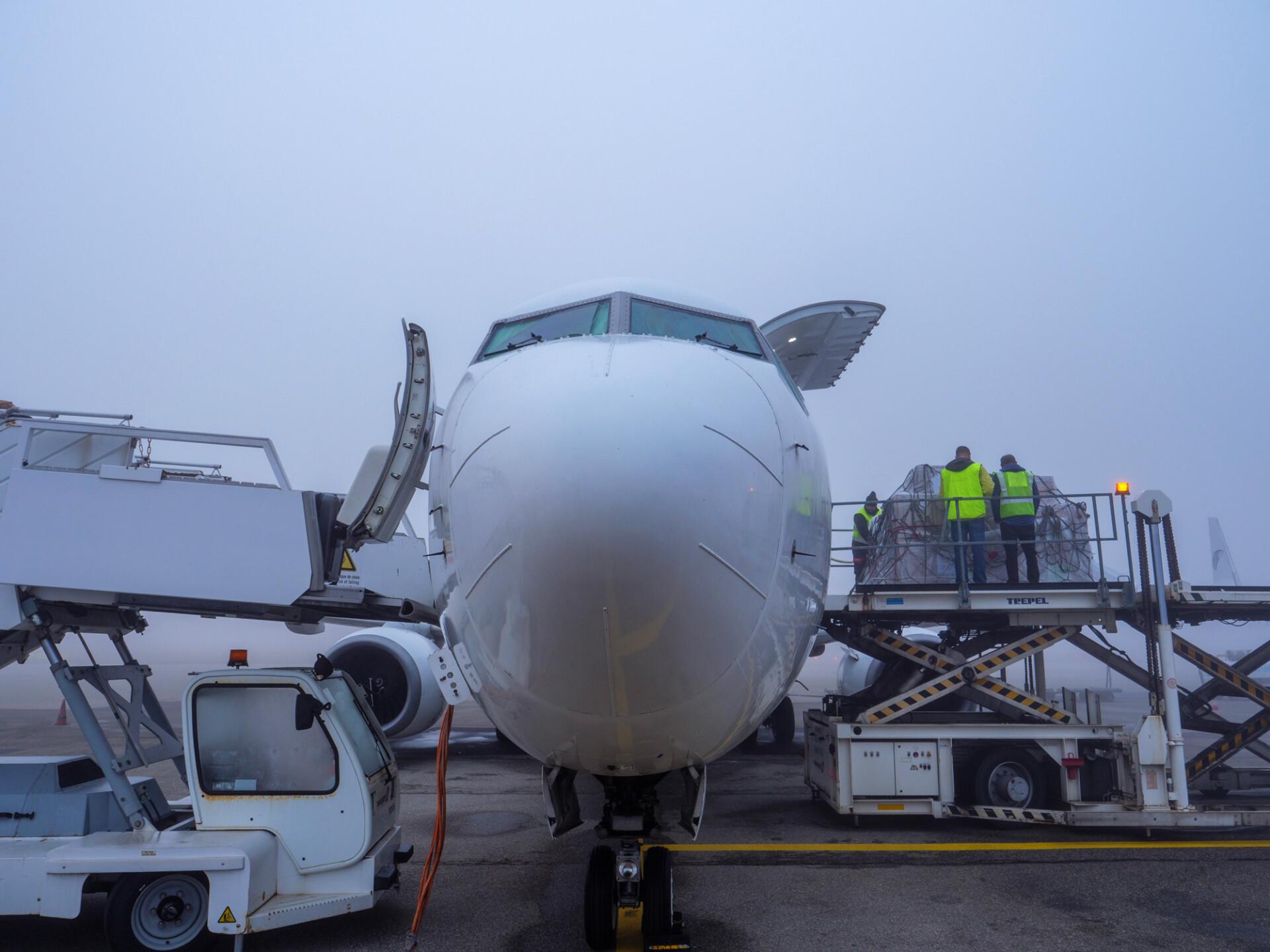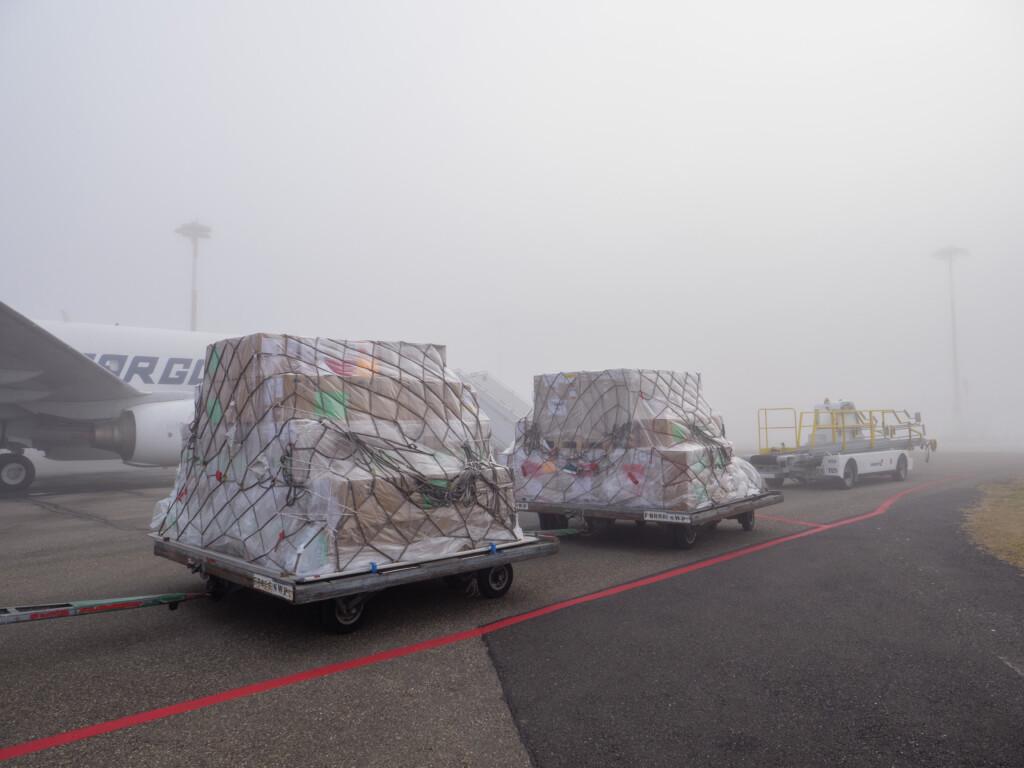
Euroflite HumanitarianCoordinating a Critical Aid Flight to Gaza
This case study illustrates the complexity and rapid responsiveness required in the logistical planning and execution of flights for humanitarian work.
News reports often provide the first clues about emerging humanitarian crises. In response to such reports, our team proactively begins preparations to address potential needs for aid.
Early Detection and Response to Humanitarian Needs is Critical
During the escalating conflicts in Gaza, the rapid intensification of humanitarian needs was immediately apparent. By monitoring global news, we quickly identified the necessity for relief flights. The primary goal in such operations is to deliver aid efficiently and discreetly, focusing solely on the well-being of the affected populations, without the intention of gaining publicity. This approach ensures that we are ready to act promptly and effectively as soon as the need arises.
As the first reports of the conflict came out, our team began preparations to understand what could be done, identifying the nearest operational airport and the logistical requirements for aid delivery. Assistance requests can vary significantly, ranging from small packages to substantial supplies, such as 100,000 tents needed for earthquake relief.
Efficient Coordination and Execution of Aid Flights
Requests for humanitarian aid flights can emerge through various channels, often requiring immediate action. In this case, we received an email request for a flight from Geneva to El Arif Airport in Egypt. The mission was critical: to deliver temperature-sensitive medicines that needed to be kept at refrigerator temperatures.
The process to launch the flight was fast to meet the urgent needs. The tender was organised and executed swiftly— we received the invitation to tender on Monday, it was approved by Tuesday, administration done by Wednesday, all permits were completed by Thursday, and the flight was scheduled from Friday night to Saturday.
The physical preparation of the aircraft was critical. Ensuring the correct centre of gravity was vital for the safety and stability of the flight, a task overseen by a dedicated aircraft loadmaster. This phase required coordination between the airline and the client, focusing on logistical precision to ensure that all aspects of the flight were in perfect alignment for the mission’s success.

Handling Challenges in Humanitarian Aid Flights
Humanitarian aid flights often face a variety of challenges, including strict rules and precise timing needs. The demand for aid in conflict zones is clear, but there are many logistical obstacles to overcome when transporting supplies from point A to point B. Organising an aid flight requires careful administrative planning. This involves ensuring the aircraft has enough fuel, providing food and drinks for the crew, and carefully packing cargo crates. Every detail is critical; for example, if fuel isn’t ordered on time, it can significantly delay the flight. Managing these elements effectively ensures that aid reaches those in need without unnecessary delays.
Arranging permissions to fly and land might be tricky, especially when the flight needs to land at military bases or in areas with tight controls. Timing can also be an issue; for example, in this case, some needed actions happened on a Friday—a weekend day in Egypt—making it hard to communicate because many offices were closed.
In terms of operational conditions, factors such as weather can significantly impact the planning of aid flights. In this case, the weather was mild, around +10 degrees Celsius, which fortunately did not require additional logistical adjustments. Upon arrival, thorough preparation was evident as WHO officials and local authorities were present to receive the aircraft. This seamless handover marks the end of operational responsibilities for our team. However, we still made sure that refrigerated trucks and other logistical elements were properly arranged after the flight.
Organising an aid flight involves much more than finding an aircraft and striking a deal. From request to takeoff, approximately 72 hours is needed, underscoring the complexity and rapid response capability of humanitarian aid operations.
Together We Can Make a Greater Impact
At Euroflite, we excel in managing complex logistical challenges and ensuring timely aid delivery during crises. We are committed to supporting humanitarian work and disaster response. By working together, we can achieve greater efficiency and expand our impact in areas most in need. Whenever in need, you can contact us using the Quote Request form, or directly via email or phone.
You can reach our dedicated team 24/7 at sales@euroflite.com.
International Sales Contact 24/7
sales@euroflite.com
+358 20 510 1900
Pauli Immonen
Head of Humanitarian, Aid & Relief
pauli.immonen@euroflite.com

